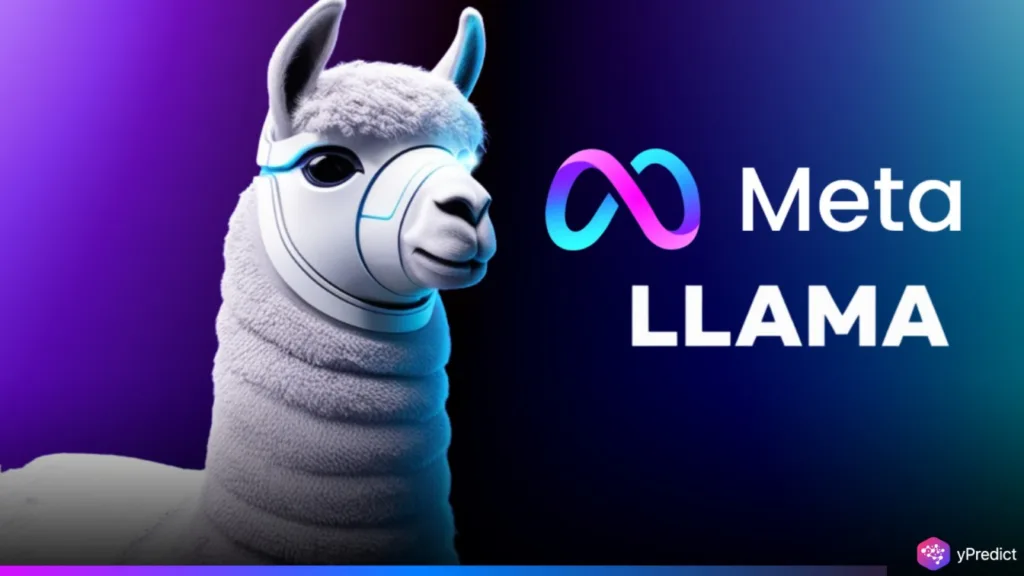
Meta launched the Llama Startup Program to promote the adoption of its open-source Llama 2 and Llama 3 models by startups. The program provides funding, engineering guidance, and cloud resources to early-stage companies building generative AI tools and platforms.
Meta positions Llama as a flexible alternative to proprietary models like OpenAI’s GPT and Google’s Gemini in enterprise settings. By supporting startups, Meta seeks to expand its developer ecosystem, drive innovation, and establish Llama as a leading AI foundation.
Driving Innovation With Llama Startup Program
Meta introduced the Llama Startup Program to help early-stage U.S. entrepreneurs build and scale generative AI using Llama models. The initiative lowers financial and technical barriers by offering tools, resources, and expertise needed to develop advanced AI solutions. Meta aims to empower startups to transform innovative ideas into real-world applications through targeted support and accessible infrastructure.
The Llama Startup Program, announced on May 21 on their official blog, demonstrates Meta’s strategic commitment to increasing the usage of its open-source Llama AI models. By directly interacting with the startup ecosystem, Meta intends to speed the creation of impactful AI applications while strengthening its position in the highly competitive generative AI market. The blog read,
We’re excited to announce the Llama Startup Program, a new initiative to empower early-stage startups to innovate and build generative AI applications with Llama. Members of the Llama Startup Program will receive resources and support from Llama experts along their journey, including help getting started with Llama and resources necessary to succeed and thrive in a competitive and fast-moving landscape.
The launch of this program is a strategic response to the growing dominance of closed AI ecosystems from companies like OpenAI, Google, and Anthropic. Unlike proprietary models, Meta’s Llama models are open-source, allowing startups greater flexibility in how and where they deploy AI systems.
Targeting U.S.-based generative AI startups, the Llama for Startups program offers expert engineering support and monthly financial grants from Meta. This combined support tackles key challenges in resource-intensive AI development, enabling faster innovation and stronger collaboration between Meta and entrepreneurs. By fostering co-creation, Meta aims to integrate its models more deeply into the startup ecosystem and drive next-generation AI solutions.
Eligibility and Benefits of the Llama Startup Program
To qualify, startups must be U.S.-based, have under $10 million in funding, and employ at least one developer. The program targets multiple sectors: technology, healthcare, finance, telecom, and e-commerce, while supporting diverse generative AI applications across industries. The current application deadline is May 30, 2025, at 6:00 PM Pacific Time, encouraging timely submissions from interested firms.
Selected individuals will get access to a strong support system, which includes:
- Monthly cloud credits of up to $6,000 for Llama API usage
- Direct technical mentorship from Meta’s Llama engineering team
- Collaboration on advanced use cases tailored to their industry
- A growing network of fellow innovators and AI professionals
Positioning Meta in the Competitive AI Landscape
Meta’s announcement of the Llama Startup Program reaffirms its commitment to expanding the generative AI ecosystem, establishing Llama as a vital enabler of startup innovation. This move also addresses increasing competition from open model suppliers such as DeepSeek, Google, and Alibaba’s Qwen.
Meta’s long-term projections for its generative AI portfolio are ambitious. The company anticipates generating $2 to $3 billion in AI-related revenue in 2025, with forecasts reaching as high as $1.4 trillion by 2035. To support this vision, Meta has committed substantial resources, including over $900 million in 2024 for GenAI development and expected capital expenditures of up to $80 billion in 2025, primarily allocated to data infrastructure.
Additionally, as part of its monetisation approach, Meta has provided customisable Llama APIs and formed revenue-sharing agreements with cloud providers who host its models. CEO Mark Zuckerberg expects the company’s flagship assistant, Meta AI, to evolve with monetisation capabilities such as subscriptions and ads.
Conclusion
The Llama Startup Program is a major turning point in Meta’s continued investment in the future of AI. Meta is growing the scope of its AI models while also initiating the development of significant, high-impact solutions across industries by eliminating entry barriers for early-stage entrepreneurs and fostering tight collaboration between startups and Llama’s technical specialists. Startups eager to push the boundaries of generative AI are urged to apply and be a part of this transformational adventure.





